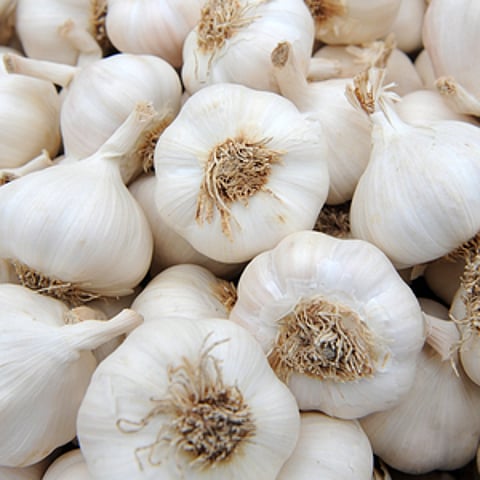

BENGALURU: All that does not smell good is not good. Each time you are buying garlic, check the smell. It could be grown in China, which is banned by the Indian government.
The central government proscribed Chinese garlic around 10 years ago to promote Indian garlic, keeping the health benefits of people in mind. But Chinese garlic, which is being mixed with local garlic in some places, is trying to enter the Indian market illegally.
“People must have experienced that garlic purchased from a vendor looked white and big. But when pealed, it had no smell or started to rot quick. This is because it is Chinese garlic. It is found in parts of North East and North India and it is large, while garlic grown in South India is small. Before Chinese garlic grabs a large share in the market, like other Chinese items, it should be stopped,” said an expert, not wanting to be named.
He said identifying this illegal garlic is easy as it has no roots. In some cases, this garlic is also washed or bleached with chlorine to make it look whiter. In some cases, it is also found to be treated with methyl bromide to reduce fungal growth.
Deepak J Shah, Secretary, Bengaluru Wholesale Garlic Traders’ Association, said they will not allow Chinese garlic and Chinese white onion to enter the market. “It is banned and cannot be sold. It has no health benefits. But if it comes in illegally, then it will be a disaster,” he added.
Shah said Chinese garlic has no pungent smell or pungent taste, but only looks better. The present market for Indian garlic is good and the production is high. The wholesale rate per kg of garlic is between Rs 100 and Rs 250.
The absence of pungency means it lacks alkalinity. Normally, garlic helps build immunity. It is a natural antibiotic and has medicinal properties.
Noted food critic Aslam Gafoor said that anything that is banned by the government, be it food items or liquor, it will not be sold or used in any restaurant or hotel, as it could affect their business. But the same cannot be said of street vendors, which is an unorganised sector, which could also have hygiene issues. It is something which the authorities need to look into, he added.
Dr Kerwin Savio Nigli, head, Dept of hotel management, Christ University, said local Indian Garlic is small, sticky and difficult to peel. But the Chinese one is easy to peel. Infact in southern India, there is another variety called as Malai Poondu or hill garlic. This is small in size and has a very pungent smell. This is seasonal and Chinese Garlic is mixed with this then it can be easily identified. Chinese one could be coming back because of rising pressure.
An official from Food Safety Standard Authority of India, said the matter is being looked into by the ministry.